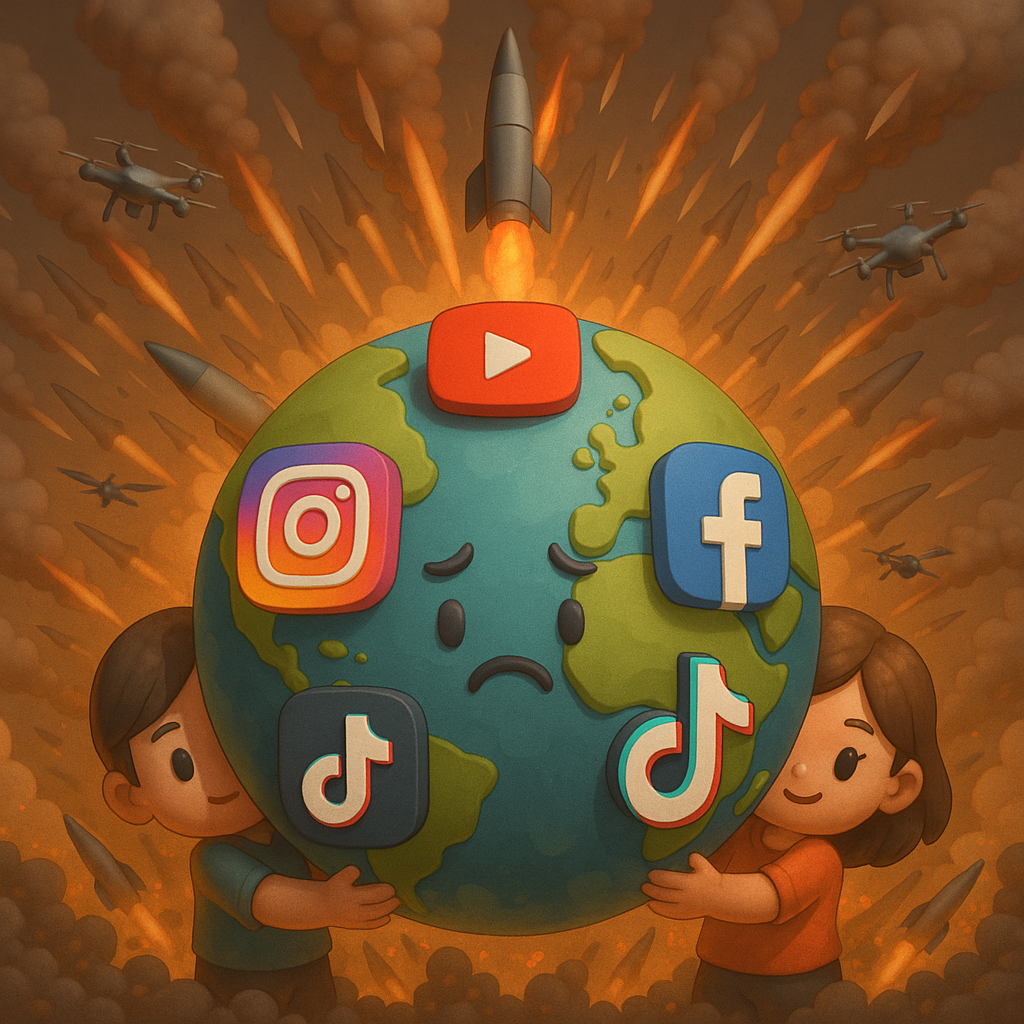
How the Israel-Iran Conflict Is Shaping the Future of Content Creation
As the Israel-Iran conflict unfolds, content creators around the world are navigating a tense and emotionally charged digital environment. The war has triggered major shifts in audience behavior, platform policies, and creator responsibilities. Whether you’re a lifestyle influencer, educator, or full-time digital creator, this global event is likely to impact how and what you post.
Here’s how it’s currently affecting the creator landscape:
1. Avoiding Political Sides, But Supporting Peace
Many creators are choosing not to take a specific political stance and instead promoting a universal message of support for peace and no war. This balanced approach allows creators to show compassion without aligning with potentially divisive narratives. Still, even neutral statements can be polarizing, making tone and timing more important than ever.
2. Audience Attention Shifting to War Content
When a major global conflict dominates the news cycle, audiences naturally gravitate toward serious updates, expert commentary, and real-time developments.
This shift results in:
Lower engagement on lighthearted or unrelated content
Less visibility for entertainment, beauty, lifestyle, and niche creators
A sense of disconnection between creators and their usual audiences
Many creators are pausing or pivoting their content to stay relevant or simply to avoid seeming insensitive.
3. Stricter Content Guidelines Across Platforms
Social media companies are updating their policies to prevent the spread of graphic content, misinformation, and politically charged narratives. As a result:
War-related terms, visuals, and even peaceful commentary may get flagged
Posts may be demonetized or removed, even without clear violations
Creators are becoming more cautious, choosing to self-censor or avoid the topic entirely
4. Algorithm Suppression of Sensitive Keywords
Many platforms are quietly suppressing posts containing certain war-related or politically sensitive keywords, even if the content isn’t violent or controversial. This includes hashtags, captions, or even spoken words in videos. Creators have reported:
Shadowbanning or reach drops after using terms like “war,” “Iran,” “Israel,” or “ceasefire”
Posts not appearing in searches or on followers’ feeds
Reduced monetization options due to keyword triggers
5. Growth of Conflict Commentary Content
At the same time, a new wave of creators is emerging or shifting toward conflict-related content, offering political analysis, on-the-ground updates, or educational breakdowns. While this genre is growing fast, it also carries high risk:
Scrutiny for accuracy and bias
Platform takedowns or demonetization
Potential backlash from global audiences
Some creators are finding success in this space, but only if they can handle the responsibility and pressure that comes with it.
6. Mental Health Toll and Moral Conflict
The emotional toll of being online during a war is real and magnified for creators. Many are experiencing:
Anxiety over posting “wrong” or “tone-deaf” content
Fear of being misunderstood or dragged into online debates
Guilt for promoting their work or business amid global suffering
Creators are reporting burnout, compassion fatigue, and a loss of creative direction, especially those with large, opinionated audiences.
What Can Creators Do?
Communicate Intentionally
Even a brief message expressing support for peace, concern for humanity, or empathy can help you connect with your audience without taking sides.
Diversify Content Thoughtfully
Blend light content with subtle acknowledgment of current events. You don’t need to overhaul your niche but be mindful of tone and timing.
Build Off-Platform Presence
Move parts of your community to platforms like Discord, Telegram, email newsletters, or private groups where you can engage more freely without algorithm pressure.
Protect Your Mental Health
Curate your feed, mute or block toxic threads, take social media breaks, and focus on content that feels authentic to you.
Conclusion
The Israel-Iran conflict is another reminder that the digital world doesn't operate in a vacuum. Content creators are not only entertainers or educators, they’re public figures navigating complex social terrain. As this war unfolds, staying grounded, intentional, and compassionate will be key to sustaining your presence and peace of mind in an unpredictable time.